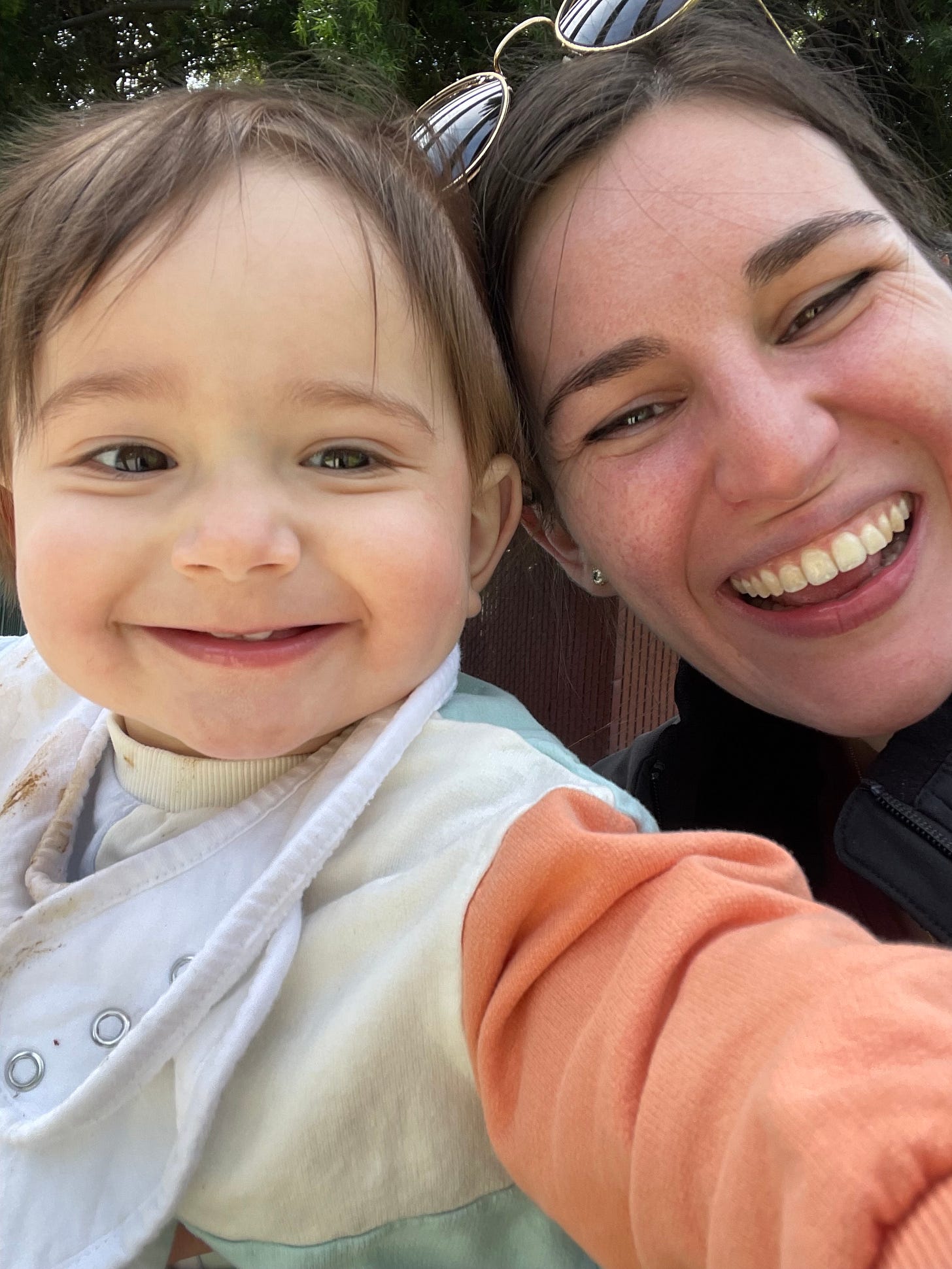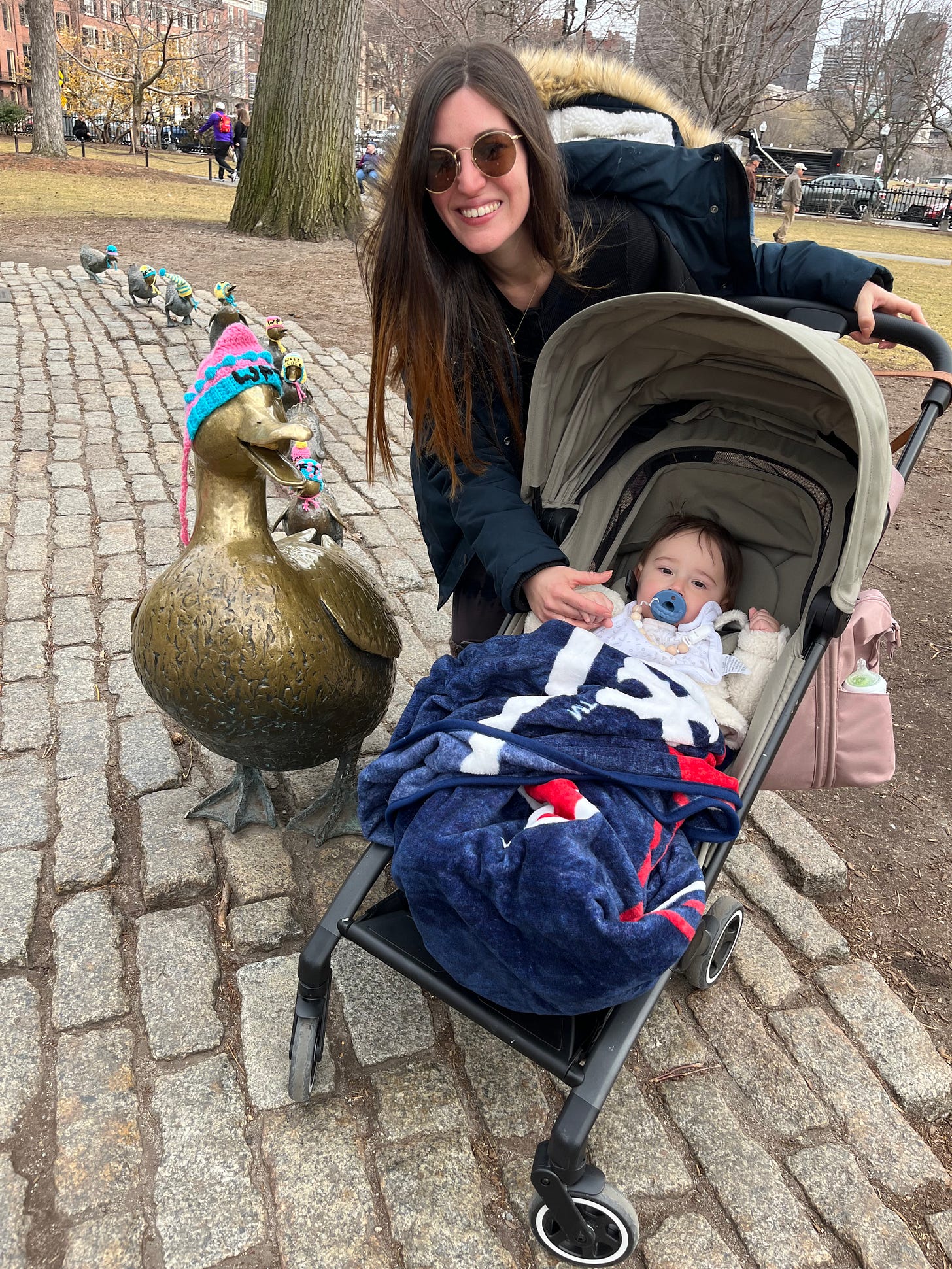NLP: the civic parenting tool you've never heard of
I’m sharing a deeply personal story as an introduction to today’s guest writer. I considered sharing it as part of the post I wrote a few weeks ago for World Mental Health Day on “Civic Self-Care”, but with next Tuesday looming, parental mental health feels much more personal and less abstract. We are ALL feeling a version of anxiety and stress right now. But just remember, there will be a Wednesday, and regardless of the outcome, that’s when the real work starts. Keep microdosing civics with us on Fridays! We’re in this together.
Anyone who subscribes to this Substack receives a welcome email that shares why I’m here. Over 10 years ago, I started writing a children’s book about a raccoon who gets inspired by her dad, a raccoon judge, to form a club of little animal lawyers and help solve little animal issues. Years later, I sat across from Aaron Sorkin at a diner as he encouraged me to find a way to inspire our youngest citizens to care about things they weren’t seeing modeled in our leaders. A few years after that, all of us went through another election that shattered relationships. And a few years after that, I became a mom to a gorgeous boy named Gus, and for the first time in my life, I lost sight of my mental health and had to work harder than I’ve ever worked to get back on track.
I speak openly about this because we need openness to help each other. I had to find a new village. My longtime therapist and I worked diligently to find a perinatal psychiatrist. I found a weekly Zoom support group through Postpartum Support International (PSI) that specialized in my diagnosis of Perinatal OCD (a support group so in demand that if you didn’t sign up first thing on Tuesdays for the following Tuesday session, there was a waiting list). I readily accepted that SSRI’s were going to be part of my life if I wanted to survive and again, thrive.
Finding each of these resources came with an abundance of privilege. Having a longtime therapist and a partner who believed in me; the cognitive ability and financial privilege of being able to piece together how to make it through. I had just started to feel like the fog was lifting as I finished 3 months of maternity leave and prepared to go back to the job I started when I was six months pregnant. I was beyond eager to get out of the house but not sure how I was supposed to leave this three month old burrito with someone other than Matt. I was lucky enough to work from home as I transitioned back to the office, but to be honest I was just as nervous about the idea of having someone always around, in my home, seeing my process of getting back to myself.
And then the person who would complete my village walked into our lives.
When Tamar joined our family, she was 27 and I was 37. She’d been working with infants since she was 18. None of my closest friends had had kids yet. I’d held all but two babies (my nephews) before having Gus.
Let me tell you: a 10-year age gap disappears quickly when you can rely on someone’s experience for survival. She was Mary Poppins and I was the weakest link.
I still remember the first time she took him for a walk outside. I sat her down and said, “Look. I know you’ve walked dozens of babies in dozens of strollers, but I have to say this out loud — no matter what, you have to fully stop the stroller at every street corner, lock the breaks, unlock, and then keep going. Even if a car isn’t coming. I just have to know that you’ll do that.”
I have literally never seen so much compassion and understanding coming back to me.
What I didn’t realize at the beginning was how my identity as a mother was going to take shape once I had the kind of support I needed to find my confidence.
Over the last two plus years, I’ve come up with lots of ways to describe Tamar. She’s my left arm (and I’m left-handed!). But truly, truly, truly, my handle on motherhood — delicate as it is for all of us — is one of the gifts Tamar gave me, and it’s a gift that unlocked more than I ever expected.
When I walked away from a 3-book publishing deal that I knew in my heart wasn’t right, I felt like years of hard work had slipped away. I had finally gotten to a place where I was ready to go back to the things that I loved, and it just wasn’t happening. I had to clear the deck and start from scratch. At that point, I had seen Tamar in action. Gus was a happier baby than I ever imagined. She was a parent coach, life coach, early childhood development guru and caretaker extraordinaire all wrapped up in a bundle of energy and positivity. She was innovative and creative and inspired. I knew that she loved to write. She had helped me unlock motherhood. What if we started writing together?
I started this Substack a year ago and promised to find a way to help parents get through the election with hope, positivity and maybe even a little humor.
As I emerged from my postpartum chapter, I finally got to refocus on my everyday phobias and neuroses. Fear of flying. Fear of heights. Driving on the freeway at night. I’d listened to Tamar talk about NLP (Neuro-Linguistic Programming), a set of techniques that looks at how our thoughts can positively change our behavior and the way we relate to the world, and seen how she applied it to everything from caregiving to achieving goals. As this charged election season comes to an end, I asked Tamar to give us the basics of NLP because I think it’s an amazing tool to have in our civic parenting toolbox.
Civic Parenting x NLP: Training Our Brain to Amplify Positives
Sarah and I started working together raising her beautiful, smart and funny baby boy Gus just after I finished my NLP (Neuro-Linguistic Programming) certification with a mission to help others, including parents, to have tools for harder days.
For me, NLP was a tool for changing behaviors and thoughts in a positive way.
When Sarah started Civic EQ a year ago, I was wowed by her and her mission. Today I’m the Chief Creative Officer of Civic EQ and author of our future books (stay tuned!!!). I’m honored to write this post today and I’m very grateful for the opportunity to share with you what I learned from NLP.
So let’s jump in!
What does NLP mean?
Let’s start with the name.
N-Neuro
L-Linguistic
P-Programming.
NLP is a method that works on changing the way we think and behave from negative to positive. Our brain’s natural automatic reaction is to think negatively when situations happen or when external things affect us. Professional therapists and qualified professional instructors use NLP-guided imagination exercises to help patients change habits and thinking patterns. But there are more than just guided imagination exercises. Therapists and instructors also help their patients with NLP tools such as targeted questionnaires and targeted exercises to change behaviors.
NLP can be a great tool for anyone who wants to change the way they view the world, and it can be a great tool to help kids deal with the big world around them.
How is NLP connected to civic engagement?
The other day I asked my mom, Dalia Sternberg (PhD, Bibliotherapist and psychotherapist, trauma specialist, integrating EMDR, SE and DBT therapies) for her opinion on how civics and therapy are connected.
Her answer was everything I thought it would be. Civics, at its core, is everything a person is asking for: to feel safe, to feel sense of community, to feel part of a change and to feel involved.
It got me thinking about how to introduce civics and NLP.
NLP and civics have a tight relationship: we all want to feel integrated into a community and to live in a world we feel safe in. NLP tools and other therapy techniques are here to give us peace of mind – we are on the right path if we care for ourselves and the people around us.
Identifying sources of inspiration is one of the tools of NLP. Here is a little exercise that you can do yourself, with your kids and the people you care about. I hope this little taste of NLP will inspire you to see civics differently and practice a lifestyle of civic engagement with your kids.
Think of five historical or literary figures who are a model of inspiration for you and answer the questions:
1. What values did they have that you admire?
2. Which of these values do you apply in your life and in what context?
3. Which of these values do you not apply in your life yet and how can you adopt them into your life?
Feel free to share your answers with us!
Love,
Tamar Bergman
Check out our favorite NLP books for parents and kids on the Civic EQ Book Club page!






❤️❤️❤️